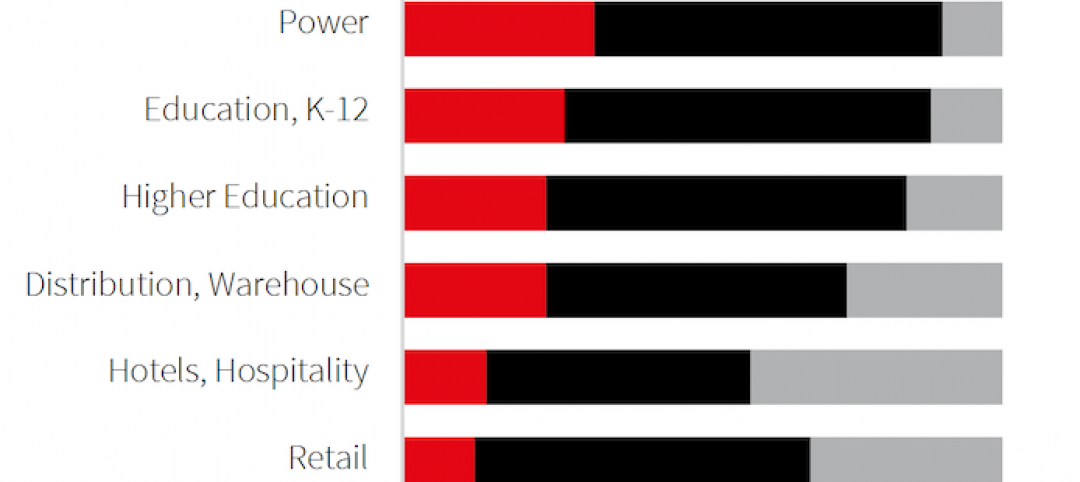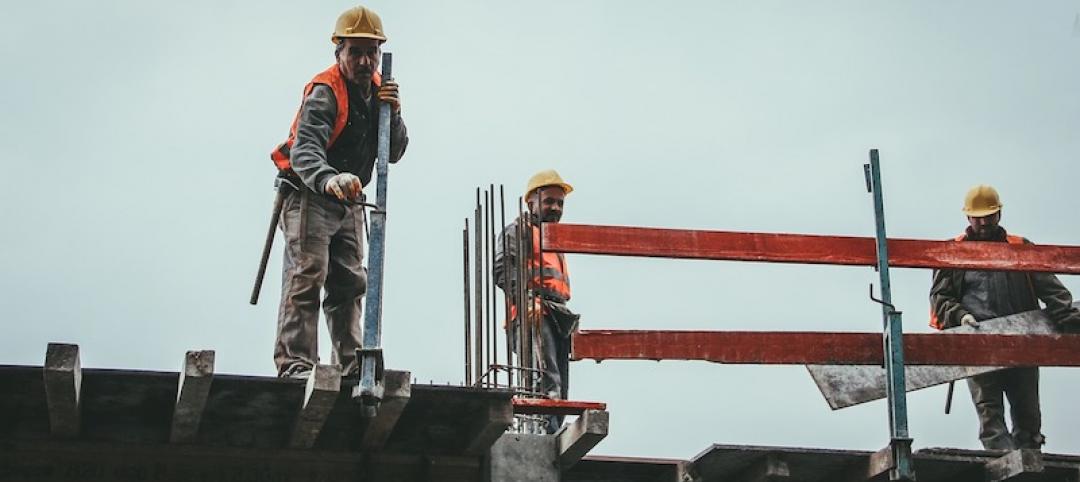Construction employment increased in 248 out of 358 metro areas between January 2017 and January 2018, declined in 68 and stagnated in 42, according to a new analysis of federal employment data released today by the Associated General Contractors of America. Association officials said that future construction job gains could be undermined, however, as new tariffs force contractors to pay more for steel and aluminum products and dampen demand for new construction.
"The new tariffs are already leading to increases in what many contractors are paying for steel and aluminum products," said Ken Simonson, the association's chief economist. "Most contractors will be unable to pass along these increased costs, leaving less money to invest, ironically, in steel construction equipment as well as personnel."
Riverside-San Bernardino-Ontario, Calif. added the most construction jobs during the past year (10,600 jobs, 12%), followed by Phoenix-Mesa-Scottsdale, Ariz. (9,900 jobs, 9%); Houston-The Woodlands-Sugar Land, Texas (9,200 jobs, 4%); Los Angeles-Long Beach-Glendale, Calif. (9,000 jobs, 7%) and Sacramento--Roseville--Arden-
The largest job losses from January 2017 to January 2018 were in Baton Rouge, La. (-6,600 jobs, -13%), followed by St. Louis, Mo.-Ill. (-3,300 jobs, -5%); Montgomery County-Bucks County-Chester County, Pa. (-2,600 jobs, -5%); Columbia, S.C. (-2,500 jobs, -12%) and Camden, N.J. (-1,700 jobs, -8%). The largest percentage decreases for the year were in Auburn-Opelika, Ala. (-32%, -1,200 jobs) followed by Monroe, Mich. (-16%, -300 jobs); Baton Rouge and Columbia, S.C.
Association officials said that a better way to support the domestic steel and aluminum industrie s is to increase funding for needed infrastructure improvements. They cautioned that the tariffs announcement by the President last week would not only increase the cost of many construction projects, but it could prompt retaliatory measures from other countries that hurt U.S. manufacturers and shippers, impacting demand for new factories and transportation facilities.
"Boosting demand for their products is a much better way to strengthen the domestic steel and aluminum industries," said Stephen E. Sandherr, the association's chief executive officer. "And the best way to boost demand is to finally begin making the investments needed to improve the nation's aging and over-burdened infrastructure."
View the metro employment data by rank and state. View metro employment map.
Related Stories
Market Data | Mar 23, 2020
Coronavirus will reshape UAE construction
The impact of the virus has been felt in the UAE, where precautionary measures have been implemented to combat the spread of the virus through social distancing.
Coronavirus | Mar 20, 2020
Pandemic has halted or delayed projects for 28% of contractors
Coronavirus-caused slowdown contrasts with January figures showing a majority of metro areas added construction jobs; Officials note New infrastructure funding and paid family leave fixes are needed.
Market Data | Mar 17, 2020
Construction spending to grow modestly in 2020, predicts JLL’s annual outlook
But the coronavirus has made economic forecasting perilous.
Market Data | Mar 16, 2020
Grumman/Butkus Associates publishes 2019 edition of Hospital Benchmarking Survey
Report examines electricity, fossil fuel, water/sewer, and carbon footprint.
Market Data | Mar 12, 2020
New study from FMI and Autodesk finds construction organizations with the highest levels of trust perform twice as well on crucial business metrics
Higher levels of trust within organizations and across project teams correlate with increased profit margins, employee retention and repeat business that can all add up to millions of dollars of profitability annually.
Market Data | Mar 11, 2020
The global hotel construction pipeline hits record high at 2019 year-end
Projects currently under construction stand at a record 991 projects with 224,354 rooms.
Market Data | Mar 6, 2020
Construction employment increases by 43,000 in February and 223,000 over 12 months
Average hourly earnings in construction top private sector average by 9.9% as construction firms continue to boost pay and benefits in effort to attract and retain qualified hourly craft workers.
Market Data | Mar 4, 2020
Nonresidential construction spending attains all-time high in January
Private nonresidential spending rose 0.8% on a monthly basis and is up 0.5% compared to the same time last year.
Market Data | Feb 21, 2020
Construction contractor confidence remains steady
70% of contractors expect their sales to increase over the first half of 2020.
Market Data | Feb 20, 2020
U.S. multifamily market gains despite seasonal lull
The economy’s steady growth buoys prospects for continued strong performance.

















